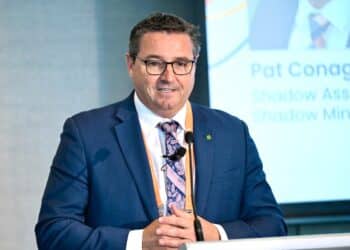The Productivity Commission’s interim Building a skilled and adaptable workforce report, released in August, highlighted that the financial advice profession is facing excessive obligations.
It had found that the entry requirements, in particular, are “disproportionate to the level of risk, contributing to a decline in the number of financial advisers, which has limited the public’s access to affordable advice”.
In its submission to the Productivity Commission’s consultation on the interim report, the Financial Advice Association Australia (FAAA) said the profession requires immediate action to remain viable.
“Financial adviser numbers have decreased significantly, from more than 28,000 at the start of 2019 to approximately 15,400 currently,” the submission said.
“A further significant decrease (estimated to be approximately 1,000 advisers) is expected from 1 January 2026, when the transitional period for existing providers to meet the financial adviser education standard ends.”
The FAAA also cited recent Adviser Ratings projections that placed the number of advisers required to meet the increased demand for financial advice at more than 50,000 by 2055.
“Drastic intervention is required, both immediately to meet the current excess demand problem, and over the medium to long term,” the FAAA said.
“For these reasons, the FAAA believes the financial advice profession should be prioritised in any Productivity Commission recommendations.”
The Productivity Commission also noted that the imposition of the more stringent standards following the royal commission, while aiming to “improve consumer outcomes and restore confidence in the profession”, had reduced the pool of potential entrants.
“From 2019 to 2025, the number of advisers fell from 28,000 to fewer than 16,000 which has reduced the public’s access to affordable financial advice,” the interim report said.
“In response, the Australian government is reforming entry pathways to ensure Australians have access to high-quality, accessible and affordable financial advice.
“Proposed changes to the education standard include removing the requirement to hold an approved qualification focused on financial advice. This will be replaced with a requirement to hold a bachelor degree or higher in any discipline, complete minimum relevant study in areas such as finance, economics or accounting, and complete prescribed accredited financial advice subjects such as in ethics, law and regulatory obligations and the financial advice process.”
The FAAA said it is “very supportive” of the proposed entry requirement changes.
“We believe that this would be a key reform to broaden the pathway for new entrants to join the financial advice profession and will help to make financial advice a potential occupation for people who have studied at a broader range of universities,” the submission said.
“At present, there is only one of the Group of Eight Universities who offer a government-approved financial planning degree.”
It also used the consultation to push its recommendation of $10,000 to incentivise advice practices to bring on professional year (PY) candidates, as well as subsidising the cost of the financial adviser exam, which it had included in its 2025–26 pre-budget submission in February.
“Although a cap on the number of grants could be introduced, the FAAA advises against a cap until the financial advice profession is off the Occupation Shortage List run by Jobs and Skills Australia,” the FAAA’s latest submission said.
“The PY is a mandatory requirement for new entrants, offering practical training and mentorship. However, its cost (born by both applicant and employer) often acts as a significant barrier to a PY program being offered, particularly with small businesses.
“Data from Adviser Ratings indicates just 484 new advisers entered the profession in calendar year 2024, plus 381 returned advisers, while 1,013 advisers ceased in the same period.”
According to the FAAA, the combination of the interim report’s recommendations, increased education standard flexibility, and its suggested financial stimulus would have a “positive impact on the downward trend in financial adviser numbers over the last six years”.




It’s a terrible job due to the compliance regime and the fact that ASIC are judge, jury and executor. Drastic action is 10 years too late. I don’t hate anyone enough to suggest they become a financial planner. The profession is dead.
Dear All,
To make financial advice more attractive, the burden of compliance needs to be addressed. Many advisers have left the profession in droves, and the reason is clear: when an adviser makes a recommendation, the responsibility falls solely on them. Recent examples, such as Shield and First Guardian Master Fund, highlight the difficulty advisers face in monitoring fund managers. Financial advisers should not bear all the risk of investments that underperform or collapse. This is a key reason why advisers are leaving the profession.
One potential solution is for fund managers to adopt a reporting standard similar to that of ASX-listed companies. The obligation of continuous disclosure, as outlined in ASX Listing Rule 3.1, requires listed entities to immediately notify the ASX of any information that a reasonable person would expect to have a material effect on the price or value of their securities once they become aware of it.
To attract more individuals to become financial advisers, we should consider reinstating upfront and trail commissions for managed funds, as well as re-establishing insurance (risk) commissions at 120% of the premiums, along with trail commissions, as was the case before the changes were implemented. Why would anyone want to become a financial adviser under the current circumstances?
The Australian Securities and Investments Commission (ASIC) is overwhelmed with complaints, making it difficult for them to address all issues. This situation allows unqualified advisers, whether authorised or not, to provide financial advice.
Thank you.
Ai is revolutionising finance industry and our “leaders” are keeping their jobs by changing education requirements and FDS forms
We told you this would happen.
Just like trying to attract sailors to join the Titanic after it hit the iceberg…
The Adviser exam is widely regarded as obscure, with multiple-choice questions often found to be ambiguous and challenging to interpret. Introducing an interview-based system or other alternative assessment methods is increasingly justified, particularly since the majority of candidates now hold degree or postgraduate qualifications; such approaches could provide a more effective means of measuring real-world competence and critical thinking than the current format.
This is a great article, BUT the need for “DRASTIC INTERVENTION” was 5 years ago at least!
In fact I would argue that the fight back should have come from the then head of “FAAA” (the AFA) Brad Fox who rolloed over to LIF with his bullshit “circle of influence, circle of concern” capitulation. At the same time we had the lame duck running the FPA who collected his $500k and did nothing for actual advisers.
The result is what we have today. The 2 associations had to merge and advice is a basket case.
DRASTIC is not a strong enough word for this.
Minister Jones boasted he was 6 months away from creating Utopia.
Its been 6 months since the election and the industry remains in a death spiral
Great job Canberra Pollies & Bureaucrats.
Now with those 3 Million people looking for retirement advice in the next 10 years, their answer will be Uneducated, Unqualified BackPacker Sales Agents for Industry Super Fund FUM sales.
RC 2.0 here we come.